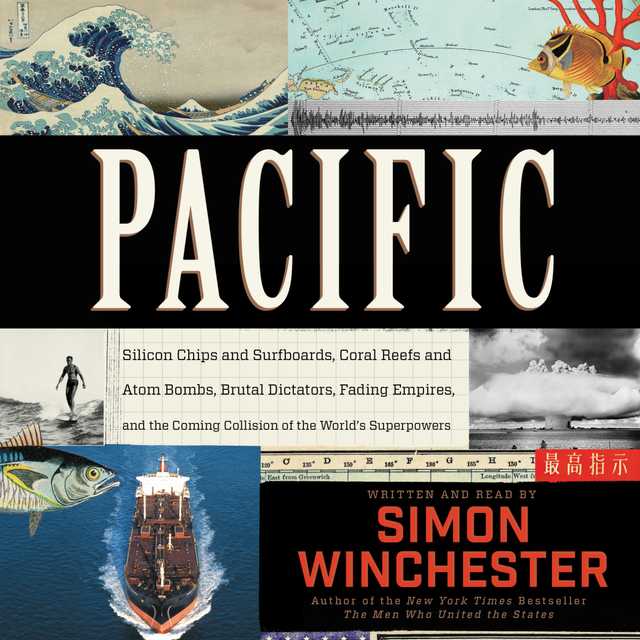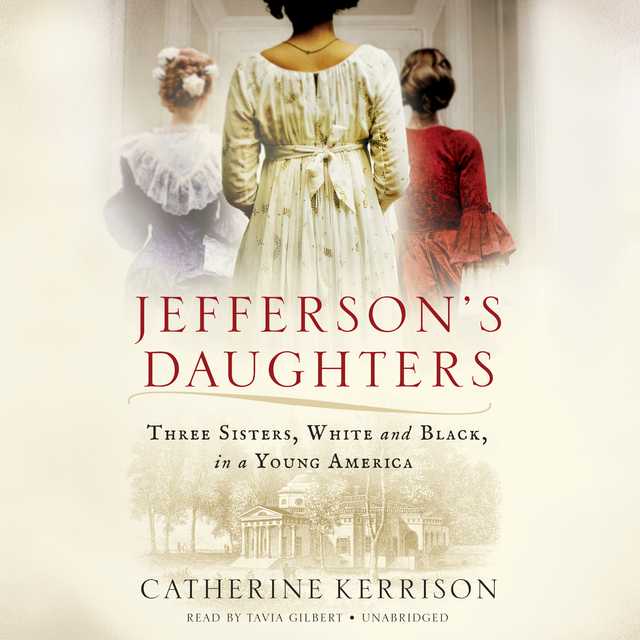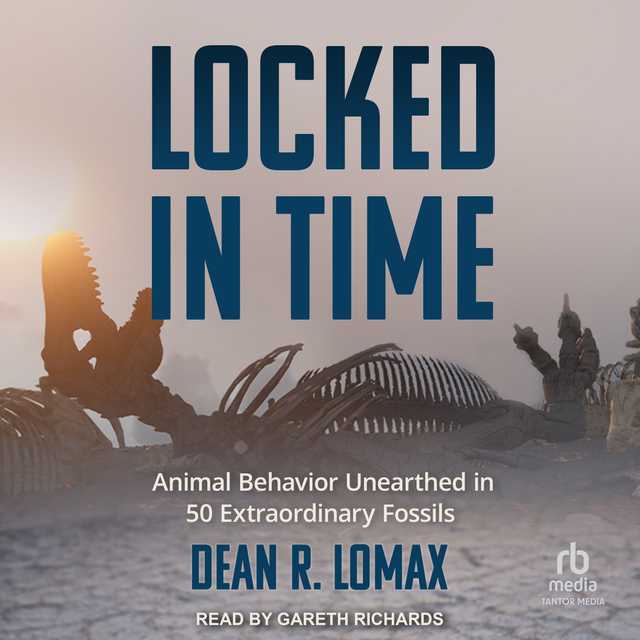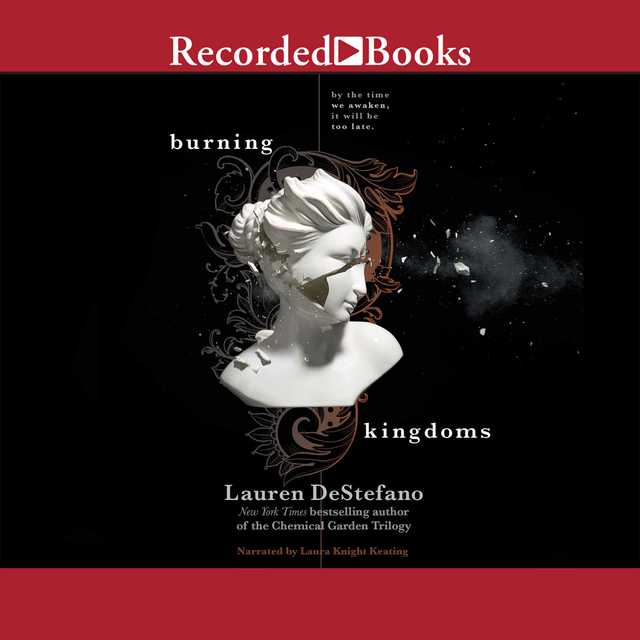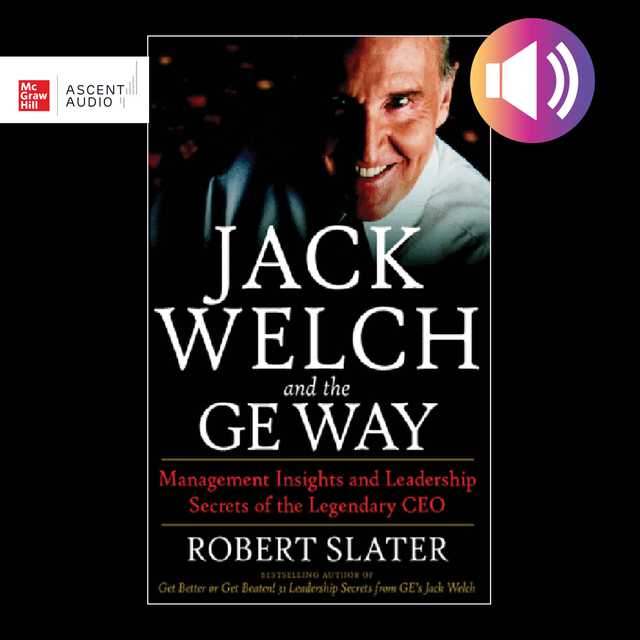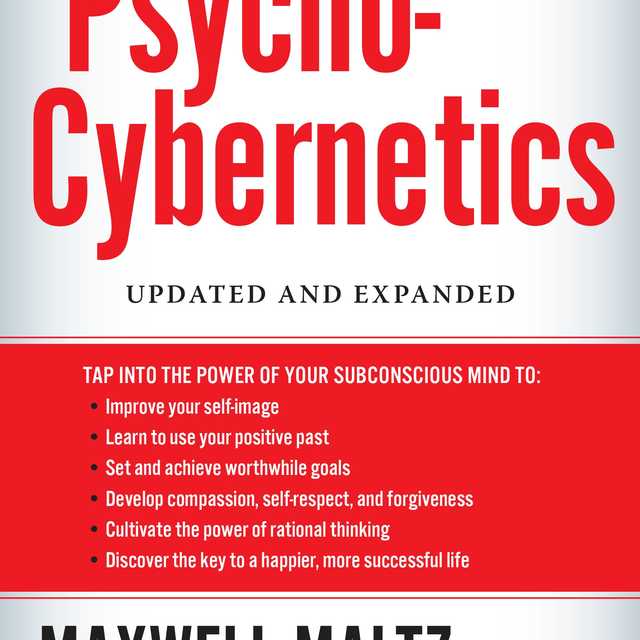Pacific Audiobook Summary
One of Library Journal‘s 10 Best Books of 2015
Following his acclaimed Atlantic and The Men Who United the States, New York Times bestselling author Simon Winchester offers an enthralling biography of the Pacific Ocean and its role in the modern world, exploring our relationship with this imposing force of nature.
As the Mediterranean shaped the classical world, and the Atlantic connected Europe to the New World, the Pacific Ocean defines our tomorrow. With China on the rise, so, too, are the American cities of the West coast, including Seattle, San Francisco, and the long cluster of towns down the Silicon Valley.
Today, the Pacific is ascendant. Its geological history has long transformed us–tremendous earthquakes, volcanoes, and tsunamis–but its human history, from a Western perspective, is quite young, beginning with Magellan’s sixteenth-century circumnavigation. It is a natural wonder whose most fascinating history is currently being made.
In telling the story of the Pacific, Simon Winchester takes us from the Bering Strait to Cape Horn, the Yangtze River to the Panama Canal, and to the many small islands and archipelagos that lie in between. He observes the fall of a dictator in Manila, visits aboriginals in northern Queensland, and is jailed in Tierra del Fuego, the land at the end of the world. His journey encompasses a trip down the Alaska Highway, a stop at the isolated Pitcairn Islands, a trek across South Korea and a glimpse of its mysterious northern neighbor.
Winchester’s personal experience is vast and his storytelling second to none. And his historical understanding of the region is formidable, making Pacific a paean to this magnificent sea of beauty, myth, and imagination that is transforming our lives.
Other Top Audiobooks
Pacific Audiobook Narrator
Simon Winchester is the narrator of Pacific audiobook that was written by Simon Winchester
About the Author(s) of Pacific
Simon Winchester is the author of Pacific
More From the Same
- Author : Simon Winchester
- Atlantic
- The Alice Behind Wonderland
- Knowing What We Know
- The Men Who United the States
- The Perfectionists
- Publisher : HarperAudio
- Abraham
- American Gods [TV Tie-In]
- Dead Ringer
- House of Sand and Fog
- Prey
Pacific Full Details
| Narrator | Simon Winchester |
| Length | 14 hours 2 minutes |
| Author | Simon Winchester |
| Category | |
| Publisher | HarperAudio |
| Release date | October 27, 2015 |
| ISBN | 9780062420060 |
Additional info
The publisher of the Pacific is HarperAudio. The imprint is HarperAudio. It is supplied by HarperAudio. The ISBN-13 is 9780062420060.
Global Availability
This book is only available in the United States.
Goodreads Reviews
Will
November 06, 2019
Simon Winchester takes pride in being a traveler. It was another traveler, the explorer Ferdinand Magellan, who, in 1520, gave the largest body of water on our planet the name by which we have known it ever since. After surviving a trip through the straits (now called the Straits of Magellan) at the southern tip of South America, his ships sailed into a very welcome calm sea. He named it pacific, for peaceful. And it was, no doubt, quite calm in comparison to the somewhat livelier waters of the Atlantic. It is big enough, at 59 million square miles, that you could cram all the landmass of earth into the Pacific basin and still have a couple of million square miles left over. Sucker is humongous. The Biggest Kahuna - from vastoceans.comWriting about the biggest piece of blue on the blue planet (No Kibbie, not where Smurfs come from) might prove a daunting challenge. Where to begin? Where to end? What to include? What to exclude? Decisions, decisions, decisions. To make his task manageable, Winchester opted to focus on the years since 1950 and look at some of the events that tell tales of lives at the edges or even in the middle of the ocean. I suppose this is like anyone’s top ten list for anything. There are always those who would grouse about the inclusion of this and such, while others would no doubt lobby for the addition of their personal favorites. Bottom line is, if you trust Winchester’s reportorial judgment, you will probably be ok with the choices he made. For those of us who have read his earlier work, this is an easy yes. I’m not saying that I necessarily agree with all his choices, but every element on which he fixes his gaze is interesting, and his well-honed tale-telling skills add that other part of a well-written work of non-fiction, making the journey he takes us on an engaging one. He is a gifted guide and while humor is not his main goal here, he does get in a chuckle or two. My favorite was of a bit of English understatement Sir Eugene Goosens, the towering and talented figure of English music who, while conductor of the Sydney Symphony, had begun the process that led to the building of the Opera House, turned out to be a man of highly exotic sexual tastes. And that, to the Australia of the time, was most decidedly not on. While in Sydney, Goosens became romantically involved with a woman named Rosaleen Norton, who was a pagan, a keen practitioner of the occult. And a lady who had a liking for both flogging and unusual kinds of misbehavior with animals, mostly goats. .. Can’t you just see that being broadcast on the BeeB by an expressionless news reader? Or delivered by John Gielgud with the same dead-panache he used in Murder on the Orient Express when asked about an injury. “Yes, there is an old contusion. The result of a slight fracas in the mess, sir, with regard to the quality of a pudding known as spotted dick.”Simon Winchester - from The IndependentWinchester’s subject choices are diverse. He is something less than radiant in his feelings about the nuclear testing done by the USA on Bikini atoll, while looking at the science involved, the politics of testing, the treatment of the locals, and of the impact on American military personnel, and the environment. He changes channels to the beginnings of SONY and the consumer electronics revolution in Japan, hangs ten with a look at the globalization of surfing culture, draws on the origin of the line that divided North from South Korea, considering both history and political implications, reaps a tale of an unanticipated legal bounty sown by a well-known ship a long, long time ago, waves goodbye as Hong Kong is restored to Chinese control, warms up to a look at climate change and its impact on storm size and frequency, tries his luck Down Under with a look at an unappreciated, visionary reformer, while telling the tale of the Sydney Opera House, noting some of the darker broom-riders in OZ, and offering a warm g’day for an entertainer of note, dives into a consideration the mind-boggling global mid-ocean ridge system, mourns the loss of species through the impact of man, and shows how a volcanic eruption contributed to a significant shift in the balance of military power in the South China Sea. Whew! Lahaina Boards - MauiHis approach here is quite different from the one he used in writing his 2010 book, Atlantic, in which he tracked the stages in the development of the ocean itself. This one seemed more of a concept approach, like a very large issue of a smart general audience magazine like, say, Smithsonian, if it decided to do an issue on an ocean. He covers diverse subjects over a considerable span of time and subject. Winchester is a serious writer and looks into his chosen subjects with a steady gaze. There are moments, however, when some of his biases creep in. For example, in writing about the return of Chinese control to Hong Kong, Winchester writes And Hong Kong, the British colony…was wrested from London’s hands [emphasis mine] in 1997 and is now an increasingly Chinese part of China As if the peaceful end of a lease constituted armed robbery. The number one Pariah Nation - from The GuardianIn a passage about Korea he writes Many military strategists have speculated that the world might have been a far safer place if postwar Korea had been divided four ways: among the United States, the Soviet Union, the Republic of China, and the United Kingdom, as was first proposed. Or if the Soviets had been given free rein to invade all of Korea, and be done with it. In this latter instance, there would have been no Korean War, for certain—merely a Leninist satrapy in the Far East that, most probably, would have withered and died, as did other Soviet satellite states. I thought this was rather cavalier of Winchester. Who is to say that a fully Sovietized Korea might not have given the USSR strategic advantages that might have impacted the development of Japan or other western leaning nations? And what of the impact on the residents?But there are far more revelations of a fascinating sort. For example, this one from 2013 Admiral Samuel Locklear III in charge of all US forces in the Pacific…declared his belief that it was actually changes to the climate—changes that were powerfully suggested by typhoon clusterings that he and his weather analysts had observed—that posed the greatest of all security threats in the region. “Significant upheaval related to the warming planet is probably the thing most likely to happen…and that will cripple the security environment.” I guess the Admiral is just another tree-hugger. One of the things that makes a good non-fiction read is the number of times one feels impelled to follow up the material the author presents with some extra digging of one’s own. You will probably be able to construct a prairie-dog town from all the digging you will want to do while reading Pacific. I have provided a few starter holes in the EXTRA STUFF section. For me, there was much here that was news, including how the line between North and South Korea came to be, some of the specifics of the US nuke tests, and the treatment of the test area locals, Jack London’s relationship to surfing, an almost comedic story of a DMZ tree, Gough Whitlam’s exciting PM term and the current growth of xenophobia in Australia, and China’s program of expanding their territorial claims and breadth of military installations in their coastal waters. Whether these items in particular float your boat or wash it ashore, there are plenty more bits and pieces in Winchester’s Pacific that, when taken as a whole, join to form a very large and satisfying read. Review posted – 10/23/15Publication date – 10/27/15=============================EXTRA STUFFLinks to the author’s personal, Twitter and FB pagesA nice overview of Winchester’s professional life can be found herePacific was long-listed for the Andrew Carnegie Medal for Excellence in NonfictionLots of nifty information about the Pacific on the official site of the National Oceanic and Atmospheric Administration (NOAA)This is a colorized and somewhat kitschy vid of the Baker nuclear test on Bikini atollHere, a US propaganda film on the Crossroads nuke testing program Sir Leslie Colin Paterson AO is a creation of comedian Barry Humphries, better known for giving the world Dame Edna Everage. Sir Leslie is a send-up of a particular Oz type. There are many vids out there of Sir Leslie. Here is sample.Still on Oz, here is the ABC 60 Minutes Tracie Curro interview with Aussie political rising star and xenophobe Pauline Hanson A Woods Hole lecturer on hydrothermal vents. Smoking permitted.A NY Times Magazine piece by Jon Mooallen - Larry Ellison Bought an Island in Hawaii. Now What?A November 2, 2015 New Yor Times article by John Schwartz, on increasing storm frequency and strength in the Pacific, The Pacific Ocean Becomes a Caldron What China Has Been Building in the South China Sea - by Derek Watkins - NY Times - October 17, 2015 - added here December 22, 2015 - This is a subject Winchester looks at in his book with some detail and alarmChina's expansion into disputed water is the subject of another NY Times piece - Possible Radar Suggests China Wants ‘Effective Control’ in Disputed Sea - by Michael Forsythe - Feb. 23, 2016News coverage of the South China sea as a potential flashpoint continues with this March 30, 2016 NY Times article, Patrolling Disputed Waters, U.S. and China Jockey for Dominance, by Helene CooperChina's move to dominate the sea in its neck of the world continues apace, despite legal challenges - Ruling on South China Sea Nears in a Case Beijing Has Tried to Ignore - by Jane Perlez - July 6, 2016 - New York TimesChina's land grab continues - China’s Sea Control Is a Done Deal, ‘Short of War With the U.S.’ - by Hannah Beech - September 20, 2018 - NY Times
Steven
November 28, 2015
Simon Winchester’s latest book, PACIFIC: SILICON CHIPS AND SURFBOARDS, CORAL REEFS AND ATOM BOMBS, BRUTAL DICTATORS, FADING EMPIRES, AND THE COMING COLLISION OF THE WORLD’S SUPERPOWERS reinforces why I am such a fan and admirer of this eclectic social scientist. No matter what topic Mr. Winchester takes on he has the uncanny ability to unwind what is a standard interpretation or history of a well-known topic and ferret out little known details to make something that is quite interesting, fascinating. The list of Winchester’s books are impressive, whether he is exploring the history of the Atlantic, the men responsible for the creation of the English Oxford Dictionary, the annihilation of the volcano island of Krakatoa, or the story of the geologist, William Smith and how he geologically mapped the underside of the earth, and many more, the reader emerges educated and entertained by a master story teller.In his current venture, Winchester explores historical aspects of the Pacific Ocean or in contemporary parlance the Pacific Rim. Winchester is a social scientist par excel lance, employing history, political science, geography, and geology as he explores his diverse topics. Where else can a reader learn about such a conglomeration of stories? He begins his journey by describing a flight over the Pacific beginning in Hawaii and immediately provides a history of the international dateline and the importance of this massive ocean on our daily lives. The blue expanse of the Pacific dominates the planet and encompasses one-third of the earth’s surface and forty-five percent of the planet’s surface waters. Despite its beauty and hidden treasures Winchester describes how the Pacific has been a dumping ground throughout modern history. America and its allies have conducted nuclear tests in the Marshall and Gilbert Islands among other locations. Biological testing has contaminated numerous islands and two million gallons of Agent Orange are stored near the Johnson Atoll Islands and rockets carrying atomic weapons have exploded in the region. What has been created is an ecological nightmare in many places. It is a shame as Winchester correctly points out that “the Pacific Ocean is the inland sea of tomorrow’s world,” much in the same way the Mediterranean Sea was in the Ancient world, and the Atlantic Ocean was for the modern world. Therefore improving our knowledge of the ocean and preserving it as best we can is so important.Winchester concentrates his narrative from 1950 to 2014 as he describes the Pacific Ocean as an “atomic ocean” because of all the nuclear testing. The narrative of events that he presents in each chapter seem unrelated, but taken as a whole we witness an important history of the Pacific. Winchester’s first self-contained chapter describes the story of the Bikini Islands and the effects of the testing of the hydrogen bomb. He then moves on to the invention of the transistor radio in the 1960s and its impact on society. Winchester then introduces us to the film Gidget as an introduction to the importance of surfing and the industry it spawned to the Pacific culture. We next meet the “hermit kingdom” of North Korea and revisit the Pueblo Affair of 1968 and other incidents that make the Pyongyang government so dangerous, even today. Those interested in Australia will visit her history and her evolution from a backward, racist society to a more enlightened one in the 1970s and its reversion to its former “Crocodile Dundee” reputation after 1989 as it can’t seem to make up its mind as to whether it wants to be a Pan Pacific version of Canada and the United States or a backward mulish and racist country that cannot decide if it wants to accept non-whites as immigrants for their country. Another issue that is extremely important for Australia is its approach to its coral reefs that have been damaged and are threatened with disappearance sooner than scientists ever imagined. As Winchester aptly points out, the Australian government must decide what is more important, mining interests or the natural ecology of its coastline. Winchester dissects weather patterns, natural resources, plant life, tectonic mayhem, ecology, i.e.; describing areas of the Pacific as “garbage gyres,” through various discoveries and how they affect us. Of course, no history of the Pacific could be complete without a discussion of China’s evolution into a major economic and military power and what that means for the future of the Pacific region and the planet in general. This evolution is reported in pure Winchesteresque manner as the author relates the Mount Pitubo volcanic eruption in the Philippines on June 15, 1991, the second largest volcanic eruption of the last century, to the decline of the American naval presence in the Pacific to the emergence of the Chinese goal of projecting a deep blue water navy. The eruption resulted in the loss of the Subic Bay Naval and Clark Airforce bases in the region and created a military vacuum that the Chinese have been eager to fill. Winchester describes numerous examples of how the Chinese have projected their newly acquired naval power in the South China Sea, the Yellow Sea, and the East China Sea and what it has meant to its Asian neighbors and has resulted in a number of close encounters with American ships and planes.There are so many interesting and insightful tidbits that Winchester puts forth in the narrative, that readers of many different interests will be satiated. The role of the Soviet spy Klaus Fuchs and President Truman’s decision to allow thermonuclear testing in the Pacific in 1950 and its implication for our world is most important. Winchester’s descriptions of the Marshallese people and the destruction of their culture is never talked about by historians. As a young boy I used to listen to New York Yankee baseball games on a small Sony transistor radio under my pillow never thinking about how it got there. The chapter on Akio Morita and Masaru Ibuka and their discoveries that morphed into the Sony Corporation is fascinating as the consumer electronics industry that was born in Tokyo is detailed and finally explains what was hidden under my pillow for many baseball calendars. With the transistor radio in hand Winchester moves on to the art of surfing. Known as “wave gliding” for over a century Winchester describes how the release of an “unexceptional film” in conjunction with the discovery of new materials created the polyurethane surf board that took a Polynesian invention and transformed it into a worldwide sport and industry. Perhaps one of the most important aspects of the book is Winchester’s discussion of the relationship between the creation of the 38trh parallel after World War II separating North and South Korea, the seizure of the USS Pueblo, and the sinking of the RMS Queen Elizabeth and how their intertwining leads the reader to the explanation of the end of the colonization of Hong Kong and its emergence under Chinese control in 1997. The Alvin, a three person submersible is described as it allowed scientists from Woods Hole, MA to locate many of the most significant deep-seas structures and assisted in the undersea mapping of the Pacific’s mid-ocean range system causing armies of geophysicists to uncover amazing discoveries. Along the way Winchester introduces us to many inventors, political figures, scientists, and everyday people that have impacted our daily lives, yet most of us will have never run across them. These and many other aspects of the book, particularly Winchester’s discussion of the interplay between Polynesian culture and the west will provide hours of entertainment and thought for any reader.Simon Winchester not only is an excellent social scientist, he is a wonderful stylist and his writing is very easy to digest as your eyes fly across the pages. PACIFIC is a fascinating work of many social sciences and is the type of book that should produce a wide audience, I give it five stars!
Vicky
December 23, 2020
The Not Always Peaceful PacificSimon Winchester's book is a wealth of information on the history, culture, geography, and resources of the Pacific Ocean. From the nuclear-ization of the Marshalls at Bikini post WWII in what became the Pacific Proving Grounds, to the Chinese expansion into the South China Sea; he follows the change in flags across the Pacific's myriad islands. Pacific moves with ease and intelligence from the history of the pariah state of North Korea to impending war between China and Japan due to China's projected expansion."...the Senkaku Islands—claimed by the Chinese, a new hot spot in the coming collision between the world’s superpowers (since the United States is pledged to come to Japan’s side if the latter’s territorial sovereignty is impugned)..."But, there is so much more than politics. Winchester covers the sea life on the ocean floor, the deep sea vessels that explore the Mid Pacific Ridge, and the Science gained from the study of the world's largest ocean... which covers a third of the Earth's surface. He also covers the people and cultural aspects, like the rise of surfing on the Pacific coasts and Larry Ellison, the billionaire sea-loving founder of the Oracle Corporation. He details the current and projected mining efforts of the Pacific's wealth of mineral resources, and how Canadians began efforts to mine the metal-laden ruins of old black smokers down below. He talks about the rich bird life around the ocean and the Great Pacific 'Garbage Gyre' in the ABNJs (Areas Beyond National Jurisdiction or 'the high seas'). He describes the eruption of Mount Pinatubo, a highly damaging 1991 volcanic eruption in the northern Philippine islands."The unexpected eruption of the hitherto peaceable Mount Pinatubo smothered two critical U.S. bases nearby—one of them a navy headquarters—with enough ash and mud to cause their abandonment."The beginning of the Japanese electronic century, the invention of the transistor radio and tape recorders, the rise of Sony, and Japan's return after the aftermath of WWII are discussed in detail; all of which lead into the development of new industries on the Pacific Rim. The book covers international trade and shipping container services. Much is here about storms, typhoons, and weather systems, to illustrate that the Pacific Ocean is the principal generator of the world’s weather. Individual countries are discussed in quite a bit of summary detail. "Typhoon Tip, the deepest of them all, recorded an eye-watering low pressure of just 870 mbar—and enjoyed the unique distinction of being both the deepest and the widest of all tropical storms on record..." I think the politics were most informative and enlightening to me. I had not known about the Pacific Proving Grounds, though I knew about those state-side and the nuclear waste buried across the continent. This part is really appalling to read, though the author does not seem unduly critical or judgemental. It was not surprising though, considering the way the native Americans were forcibly removed from their own lands. I also learned quite a bit about how China has created several military outposts throughout the South China Sea. It becomes clear that, just as predicted, China took America's place as she was easing herself out of the region. Winchester explains the Nine-Dash Line, the First Island Chain, to help understand current Chinese Doctrine."Woody Island is now the city of Sansha, and it serves proudly as the administrative capital of all China’s supposed properties in the entirety of the South China Sea."I read this book for my stop in Kiribati, my penultimate stop on my Journey Around the World in 2019-2020. Kiribati is a small chain of islands that appears to be drowning. Good thing I stopped here now. I read it in the Kindle Whisper-sync, which I enjoyed immensely. My next stop will be Peru, where I will end my Journey for this year. After that, I plan to read the huge backlog of books I have been dying to read, but stacked to the side while I was on my journey, including a few books on prominent individual cities around the world. This book in particular has been on my Kindle bookshelf for months, begging to be read, but waiting for me to reach this point in my destination. I was not disappointed."Kiribati ...the only nation that occupies all four hemispheres, its islands and atolls being scattered north and south of the equator, and east and west of the International Date Line..."
Brendan
October 29, 2021
Writing an entire book organized around the Pacific Ocean may seem a particularly ambitious undertaking. How do you structure such a thing? What do you include? What do you leave out? While this may not be the "Pacific" you're thinking of, Simon Winchester does an admirable job of — if not delivering a comprehensive account of the world's largest ocean, at least writing nicely about some of it.To be clear, despite the book's subtitle, "The Ocean of the Future," Winchester's exploration into the topic is mostly a history, with the odd bit of speculation thrown in — mostly with regards to what China's role in and around the region will be. Winchester goes back as far as Magellan and Captain Cook's exploration of the Pacific, but most of his book is centered on what's happened post-1950. There's a chapter on Japan, largely dominated by the role Sony played in revitalizing that nation's economy, another on Hong Kong, and a good deal of talk about the various other island nations dotted around that most vast of oceans. But the lion's share of attention is on China. For a book largely about the Pacific world post-World War II, this is perhaps as it should be, although China is likely not the nation that immediately comes to mind when thinking of the Pacific. At least, not to mine.This is a solid history, even if those aforementioned speculative sections will ultimately leave this feeling somewhat dated at some indeterminate point in the not-too-distant future. Though it was published in only 2015, there were moments when I found myself suppressing a groan at Winchester's inability to foresee the role Trump would play in ratcheting up tensions between the world's two largest economies. This, along with an increased crackdown on democratic freedoms in Hong Kong in recent years and a handful of other things, would seem to require a new edition of "Pacific," or at least an updated foreword accounting for these events.Nevertheless, if it's a brief but well-written modern history of the region you're seeking, "Pacific" is certainly worth diving into.
Teri
July 28, 2016
Pacific is really a set of essays by the author about historical events and people centered around the Pacific Ocean. Winchester takes us on a chronological journey starting with the testing of a-bombs at the Bikini Atoll in the 40s and 50s and ending with the eruption of Mt. Pinatubo in the Philippines in 1991, leaving the area defenseless at a time when China was wielding its strong arm of power. Along the way we learn about such things as the rise of Sony Corporation, the influence of surfing on island culture, the bleaching of coral reefs and how the Earth's weather patterns begin and end in Polynesian paradise. Pacific is primarily historical, but covers environmental concerns, and military/political events. I enjoyed this book and the individual stories. Some peaked my interest more than others, but overall I found it to be an intriguing book.
Michael
June 24, 2015
A pleasure read with surprising moral heft and geopolitical insight. Popular history at its finest.
Jonathan
January 15, 2016
Just finished listening to this on Audible. Not only is Winchester a pleasure to listen to (there is some of that "well, he has a British accent, so he must be educated" air about his diction), but he is a great storyteller. Not as much as a book about a specific thing, but a collection of rather good New Yorker or (heh) The Atlantic length magazine articles, held together by their connection to the Pacific Ocean. He jumps from the US A-Bomb tests, to the origins of the Sony Corporation, to surfing, deep-sea mining, Hawaiian Royal feather cloaks, the Sydney Opera House, and Chinese military expansion and holds attention throughout. A delightful book (and listen).
da
May 17, 2016
Mr. Winchester is amazing. His reading enthralls, as does the subject matter. He thoroughly covers countries, politics, ecology, & on & on, yet manages it elegantly.
Krista
February 12, 2021
I love well-researched but readable and accessible histories. This is one of them.Broken up into long-article length chapters (Winchester says this "structural vade mecum" was inspired by a book by Stefan Zweig, most recently translated with the title Shooting Stars. A "slender collection of ten ruminative essays...about what Zweig considered to be seminal moments in the tide of human experience.")Pacific is not slender but it is ruminative and I would agree that most of the 10 incidents Winchester chose could be considered seminal. I learned how carbon dating works. I learned that the bikini is called the bikini not because natives wore something similar on the Bikini Atoll, as I had always assumed, but because of the nuclear testing there; "Like the bomb, the bikini is small and devastating."I learned that the Japanese concept of mentsu probably had a role in limiting scientific progress. "The socially lethal consequences of losing face (mentsu) or, more dangerously, of causing others to lose it, may well have inhibited certain kinds of scientific progress, in large part because such consequences militate against experimentation, which invariably embraces failure, even public failure. Picking oneself up and beginning again, making the experiment subtly different, and performing many experiments until one finally works--such is the essence of scientific advance. And this was not always an easy concept for Asian scientists to accept."I learned that the founder of Patagonia might be considered the founder of flex time. "Let my people go surfing. None of us ever dreamed of working in a normal business environment, so we hired self-motivated and independent folks; surfers and climbers. We leave them to decide when and how to do their jobs. So far it has worked out very well."I learned some of the vagaries and odditites of the colonial ideal in the Pacific islands; near the end WWII, a British commander in Vietnam, commanding an infantry of kukri-wielding Gurkah battalions from Nepal, armed imprisoned Japanese soldiers and compelled them to fight the Viet Minh nationalists who were actually rebelling against French colonial rule. "The notion that Japanese troops would be armed by those who had recently vanquished them and that they would then be compelled to fight under a British flag alongside Nepalese soldiers for a French colonial ideal against a Vietnamese force that was demanding its own people's independence is well-nigh incomprehensible."Or in the New Hebrides, there were two bureaucracies; one French and one British. "Since 1906, these islands had been run for complicated reasons by a condominium of two uninvited European powers, the British and the French...the French official in charge of drains in Port-Vila, for example, had a British counterpart who was charged with exactly the same task. The language of New Hebridean administration had to be translated twice, Canadian style, and sometime thrice, since the doubly colonized citizens actually spoke a third, Creole tongue called Bislama...Two police forces, their officers wearing different uniforms, did their best to keep civil order in turns, performing their respective duties on every other day...National holidays were so numerous and so keenly celebrated in the perpetually torrid climate that little work was performed anyway--and in time, the whole unholy and intractable mess of governance exhausted everyone, collapsed internally, and was finally called to a halt in 1980..."Or the surreal reality of the Korean DMZ. "At the time of the signing of the 1953 armistice, a group of supposedly neutral countries agreed to monitor the cease-fire. The North had nominated as its two countries Poland and Czechoslovakia; the South had selected Sweden and Switzerland." But in recent times, the monitoring system had become "comically absurd...Absurd mainly because of what had happened since the fall of the Soviet Union in 1991, and the abandonment of communism by the North's two chosen neutral nations, Poland and Czechoslovakia (and the division of the latter into two brand-new and entirely capitalist countries). North Korea had responded to the apostates by kicking their observers out of the country, leaving only the Swiss and the Swedes to maintain the monitoring. Except that the Poles kept on trying to send at least one delegate to maintain the fiction that the commission still existed...each Tuesday the countries' representatives meet in formal session--about thirty-five hundred meetings have taken place since the cease fire in 1953--and discuss and take notes of all the various alleged breaches of the cease-fire and other such matters (tunnel diggings heard, snips in the barbed wire noticed), and write a report. They place these written reports in a mailbox marked KPA, for Korean People's Army. But since 1995 no North Korean has ever picked up the mail, and so every six months an official from the commission empties the overflowing mailbox and puts all the reports into a file cabinet, just in case Pyongyang ever demands to see them. As it happens, the door of the commission's hut opens directly into North Korean territory, and for a while the Swiss general would unlock it and wave the latest report at the soldiers a few yards away. They turned their backs and ignored him, never came to collect the document, and later complained that the waving constituted an offensive gesture."I learned, or re-learned, that "...if the Pacific Ocean is the principal generator of the world's weather, then the ultimate source of all the Pacific's extreme meteorological behavior is the initial presence of its massive aggregation of solar-generated heat. This changes the long-term phenomenon we know as the climate. The climate in turn brings about the short-term phenomena we know as weather." Winchester is not a denier of environmental and climate change but he's not an alarmist, either; "Locally, there will be mayhem. Globally, less so. The planet, perhaps, will manage to heal itself. The world and its creatures will survive, and all will eventually allow itself to come back into balance, just as the geologic record shows that it survived and returned to balance after any number of previous cycles of excess and danger. And once that happens, the Pacific Ocean will be seen, uniquely, for what many climatologists are coming to believe it to be: a gigantic safety valve, essential to the future of the planet."
Josh
November 28, 2015
I adore almost everything Winchester has written, and as a scientist working in the Pacific I approached this book with very high expectations. These were only heightened after seeing him speak at the New York Public Library. I love his voice and I read most of his works with hearing his voice in my head. Like Atlantic this book approaches a tremendously large topic. Much like in Atlantic, Winchester tells the story of the general though insights into the specific. In Pacific he talks about monumental events what have taken place in Pacific since 1951. This book would have gotten five stars except that I feel like Winchester cut himself short. These short chapters were very interesting (and great for the train) but what was really fantastic about Winchester's earlier works is the depth that he allowed himself to explore stories. Few things are better than Winchester tracking down the story through all of the interstices and rabbit holes that it presents, and that simply isn't possible with the topic as long as Pacific. I would have preferred him to take one topic (the development of surfing was fascinating) and really explore it further. That being said the book was fantastic, I learned a lot, and I was sad when I fished the epilog (a chapter on Pacific peopel's open ocean navigating without instruments - also begging to be a whole book).
Hayley
August 01, 2017
Simon Winchester's Pacific was a wonderfully unique historical biography of the ocean since 1950. While at times the narrative was dauntingly substantial in facts and events, Winchester masterfully wove one story into the next. Only upon finishing did I really appreciate the extent to how much research, time, and pure brainpower went into linking certain catalysts to events that often spanned years and countries.Ultimately, this book made me curious to know more about the Pacific. I constantly had google search at the ready to research palolo worms and Kwajalein Atoll. I kept a list of notes in my phone of concepts and places that I still want to look into. I bothered my sister with facts about the number of official languages in Papua New Guinea (848) and the intricacies of trade winds on the global climate. So while it wasn't a light and breezy read, Pacific was a great choice for passing those lazy summer days this July. And considering the extent to which Pacific was such a fount of information, I could probably read it again next week and learn just as much from the stuff I missed the first time around.
C.
February 27, 2019
Simon Winchester has written a dynamite piece of non-fiction. Pacific: The Ocean of the Future has an intriguing structure and one that gives the reader an eye-opening history of this immense area of our planet. He chose what at first seemed disconnected events, wove the narrative into a seamless piece that at times almost read like fictional prose, yet remained thoroughly instructive. The range of history is wide and fascinating: Bikini nuclear tests, surfing a sport and an industry, Sony from fledgling company to household name, climate and weather the crux of earth's survival, and China's island "acquisitions." I finished this book with a much greater appreciation for the importance of this ocean at my front door and a keen interest in tracking what lies ahead in its role for mankind. This book is remarkable in every respect; I highly recommend reading this one.
Frequently asked questions
Listening to audiobooks not only easy, it is also very convenient. You can listen to audiobooks on almost every device. From your laptop to your smart phone or even a smart speaker like Apple HomePod or even Alexa. Here’s how you can get started listening to audiobooks.
- 1. Download your favorite audiobook app such as Speechify.
- 2. Sign up for an account.
- 3. Browse the library for the best audiobooks and select the first one for free
- 4. Download the audiobook file to your device
- 5. Open the Speechify audiobook app and select the audiobook you want to listen to.
- 6. Adjust the playback speed and other settings to your preference.
- 7. Press play and enjoy!
While you can listen to the bestsellers on almost any device, and preferences may vary, generally smart phones are offer the most convenience factor. You could be working out, grocery shopping, or even watching your dog in the dog park on a Saturday morning.
However, most audiobook apps work across multiple devices so you can pick up that riveting new Stephen King book you started at the dog park, back on your laptop when you get back home.
Speechify is one of the best apps for audiobooks. The pricing structure is the most competitive in the market and the app is easy to use. It features the best sellers and award winning authors. Listen to your favorite books or discover new ones and listen to real voice actors read to you. Getting started is easy, the first book is free.
Research showcasing the brain health benefits of reading on a regular basis is wide-ranging and undeniable. However, research comparing the benefits of reading vs listening is much more sparse. According to professor of psychology and author Dr. Kristen Willeumier, though, there is good reason to believe that the reading experience provided by audiobooks offers many of the same brain benefits as reading a physical book.
Audiobooks are recordings of books that are read aloud by a professional voice actor. The recordings are typically available for purchase and download in digital formats such as MP3, WMA, or AAC. They can also be streamed from online services like Speechify, Audible, AppleBooks, or Spotify.
You simply download the app onto your smart phone, create your account, and in Speechify, you can choose your first book, from our vast library of best-sellers and classics, to read for free.
Audiobooks, like real books can add up over time. Here’s where you can listen to audiobooks for free. Speechify let’s you read your first best seller for free. Apart from that, we have a vast selection of free audiobooks that you can enjoy. Get the same rich experience no matter if the book was free or not.
It depends. Yes, there are free audiobooks and paid audiobooks. Speechify offers a blend of both!
It varies. The easiest way depends on a few things. The app and service you use, which device, and platform. Speechify is the easiest way to listen to audiobooks. Downloading the app is quick. It is not a large app and does not eat up space on your iPhone or Android device.
Listening to audiobooks on your smart phone, with Speechify, is the easiest way to listen to audiobooks.

